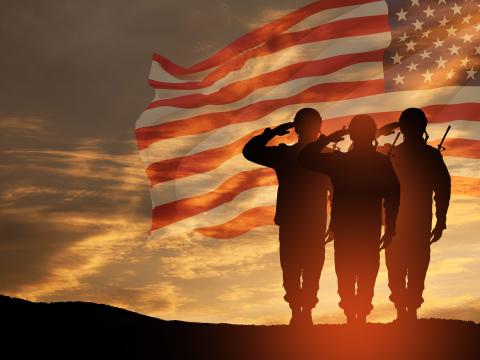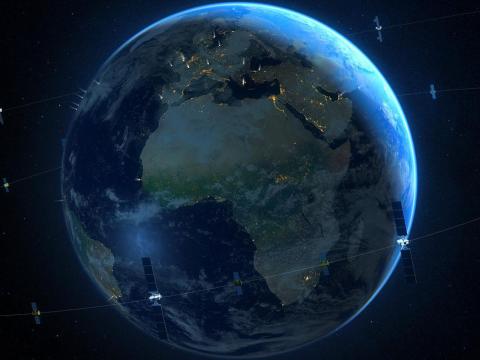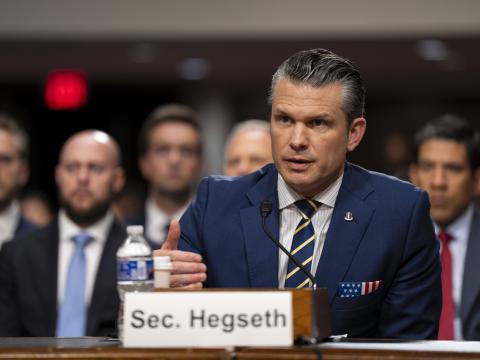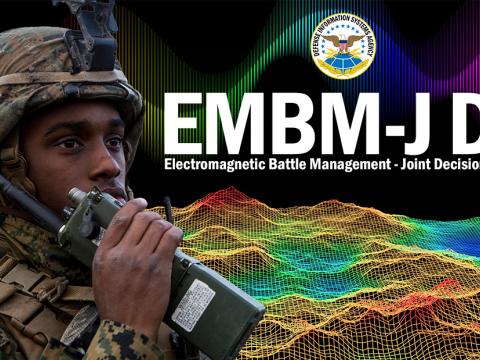Past Notion Takes an Aft Seat to Salty Truth of Piracy
Should existing commands such as AFRICOM and CENTCOM's maritime forces be granted greater authority, or should the U.N. beef up its protective policy and punishment? Is it too small a problem, in the big picture, to create a worldwide organization that deals only with protecting world's waterways? Dock here, toss over some tie lines for discussion, and share your ideas.
Current reality washes away any former notions of romantic high-seas rogues when nations take into account just how piracy has threatened life, limb, and the world economy. In this issue of SIGNAL Magazine, Maryann Lawlor strips away the dashing mantle draped around piracy-exposing the true nature of modern-day pirates as dangerous, lawbreaking looters-in her article, "Piracy Threatens Global Economy." During the first week of 2010, pirates captured four ships, and a record ransom of between $5.5 million and $9 million was paid for the release of a crude oil tanker. For poor countries, piracy is a lucrative way to keep them going, and the world's hotspot is the Gulf of Aden, particularly near Somalia's coast. The cure is as complex as the scourge itself. The insidious virus is a vicious cycle: pirates want money, ships/crew equal fast bucks, and shipping companies are willing to pay a ransom price. Insurance costs shoot up. The more money companies pay in ransom, the more greedy the pirates become. Somalia hasn't had an established government since 1991, its waters are polluted, and it's desperate for a lifeline-even if that means ceding power to the pirates, says U.S. Naval Academy's Dr. Virginia Lunsford, an associate professor. The problem was brought to public light quite drastically in April 2009 when the M/V Maersk-Alabama fell victim to high-seas hijacking. The takeover ended when Navy SEALs killed three pirates who had held Capt. Richard Phillips hostage for five days. Dragging the anchor on a solution is the lack of coordinated defensive efforts. Some say U.N. resolutions that enable countries to intervene are sufficient; some believe the rules among nations and the world's governing bodies are too nebulous. This cloudy realm of regs is leaving the U.S. sea services somewhat adrift. The 13th Marine Expeditionary Unit's commander, Col. David W. Coffman, USMC, believes a proactive stance could be a pound of prevention:
Aren't we [the U.S. Navy and United States] supposed to do this for a living? If we are allowing freely legal maritime commerce to have to run the gantlet, and we're set up to let eight or 10 Somali teenagers aboard to drive the ship, all types of bad things can happen. We're put at significant risk by losing the security of the sea lanes like that.
Fixing the problem is a daunting challenge. It could include pooling world cooperation to help improve the quality of life for impoverished nations. It also depends on military ISR and other capabilities spanning a huge operational area to keep the scofflaws in check. But the problems don't end when the bad guys are caught: Lunsford says authorities detaining these criminals must determine their own policy. Should they be taken to Somalia, where no official court system exists; to a nearby country such as Kenya, which takes both pirates and Somali refugees; or to the United States where they receive the same rights as U.S. citizens? All sentient parties agree the problem is severe, bringing great cost upon the shipping companies and countries that is passed on to consumers, while on the other side of the coin, the criminals turn a big buck. But the authorities need to formulate a way forward to address this perilous, money-swallowing virtual economic Bermuda Triangle. Should existing commands such as AFRICOM and CENTCOM's maritime forces be granted greater authority, or should the U.N. beef up its protective policy and punishment? Is it too small a problem, in the big picture, to create a worldwide organization that deals only with protecting world's waterways? Dock here, toss over some tie lines for discussion, and share your ideas.




Comments